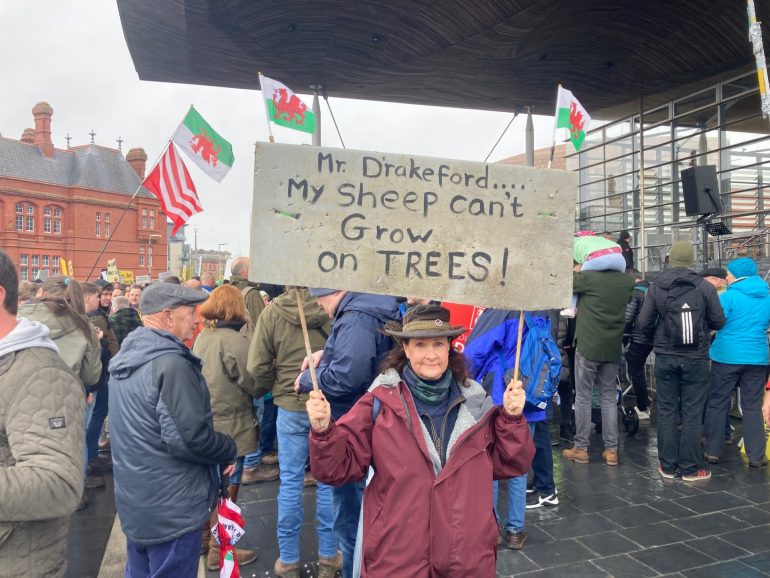Consultation over Wales’ controversial new agricultural plan ends today. But what does this mean for food and farmers?
FARMERS today have their last chance to have a say on the Welsh Government’s controversial Sustainable Farming Scheme which would have a major impact on the industry.
The scheme has come under fierce opposition from some farmers over a requirement for them to cover 20% of their land in trees or other natural habitats.
“The current proposals do not give farmers the stability their businesses need and also hinder the industry’s food producing capacity,” said NFU Cymru.
So what is SFS, how it is different from the scheme that came before, and what it will mean for farmers’ livelihoods?
What is the Sustainable Farming Scheme?
The Sustainable Farming Scheme is the Welsh Government’s plan to subsidise farmers now that the UK has left the European Union and no longer falls under its Common Agricultural Policy.
The CAPs paid farmers largely based on how much land they owned and treated environmental actions from farmers as a form of bonus. Under the SFS, farmers would be subsidised according to their ability to meet requirements, many of which are to do with the environment rather than food production.
Wales voted to leave the EU in the 2016 referendum at a higher rate than any other UK nation.
How would farmers be paid?
Under the old EU policy, farmers were on a basic payment scheme called the BPS. Under the new scheme, farmers would still be paid a baseline rate, depending on how many of the new requirements they fulfill. Environmental concerns were a bonus under the EU, they are now a requirement.
To help this transition, farmers would be paid a “stability payment” between 2025 and 2029 if what they earn under the SFS is less than they received under BPS.
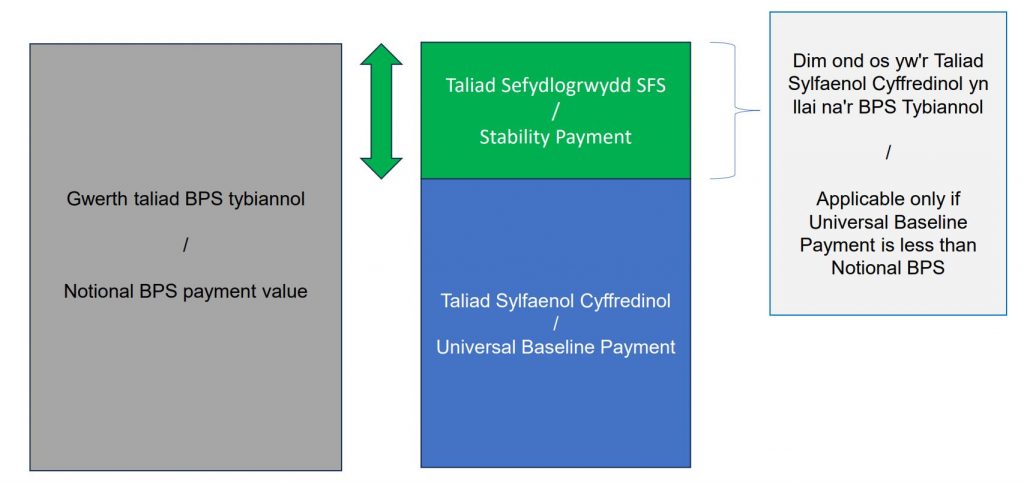
The Welsh Government says it will take into consideration “costs incurred, income forgone, and social value” but these payments have not yet been defined so farmers are unclear over how much they would be paid.
Why has the SFS faced backlash?
The new requirements the Welsh Government wants to prioritise are known as Universal Actions and some of them are worrying farmers. These include:
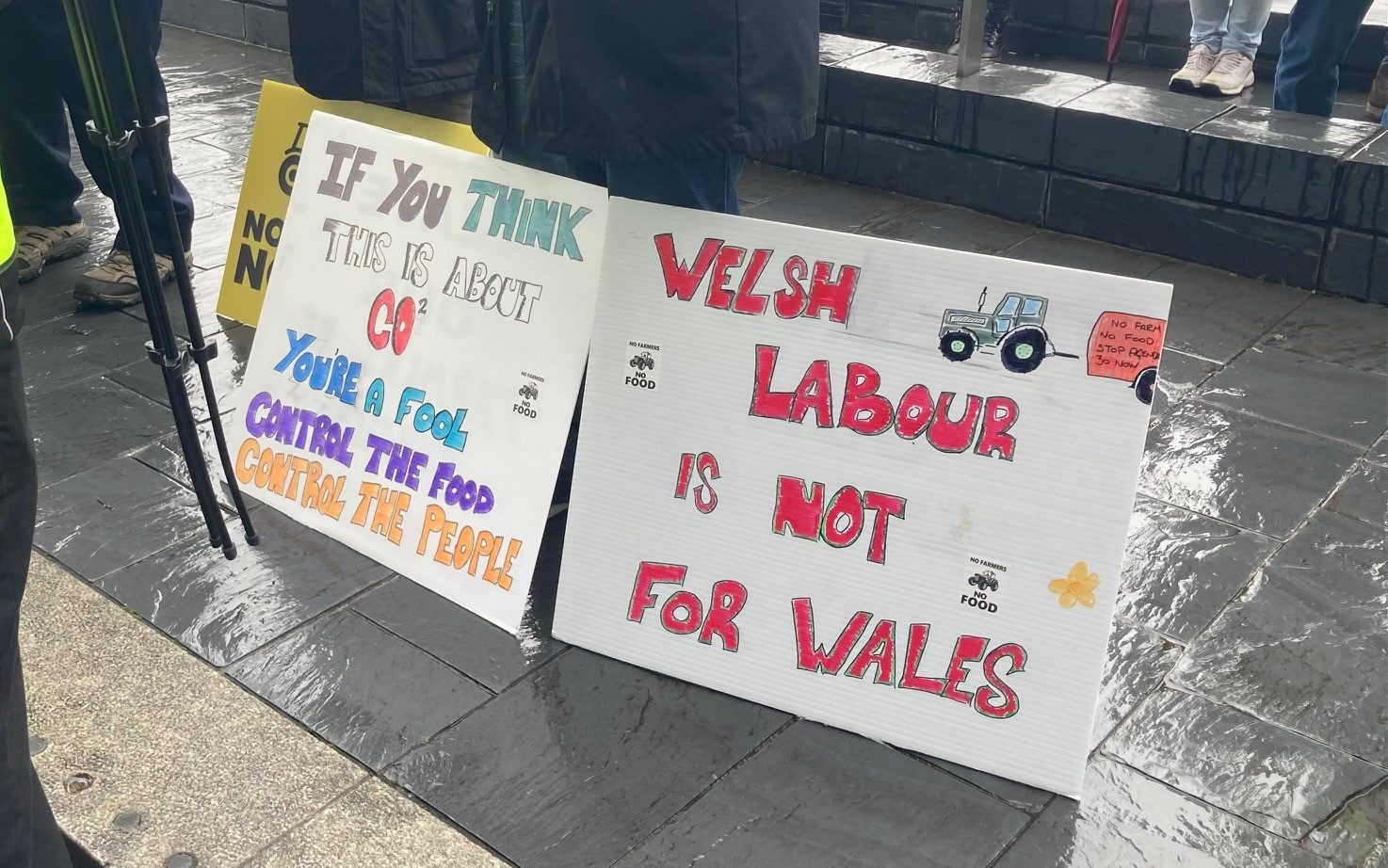
Tree coverage
The most concerning issue is that 10% of farmers’ land must have tree cover. This could take up land currently being used for food production and may take away crucial sources of income for struggling farms.
Habitat coverage
Farmers must also have 10% of their land reserved as natural habitat. This could include ponds, established woodland, and good hedgerows.
So one fifth of farmland in total would be unable to accommodate crops or livestock. Farmers are worried this change would hit them hard financially, as crops and livestock are more profitable than the payments.
How do Welsh farmers feel?
Farming, across the UK, is a difficult business, with only half of UK farms managing to turn over a profit in the past 10 years.
Ernie Richards, a shepherd from Powys, is afraid that the Welsh Government are not treating livestock and food as a priority.
“We, as farmers, produce food, and the Sustainable Farming Scheme, in its current format, is not enhanced towards producing food,” said Mr Richards.
“As farmers, we do care about the environment, but we need to make sure that food production is the first thing we look at.”
NFU Cymru has said that farmers in their union “remain frustrated” that the Welsh Government has not “heeded the views” provided by farmers in previous consultations.
“We simply cannot see the government move forward with a scheme that puts 5,500 Welsh farming jobs in jeopardy, never mind the additional knock-on this will have to further jobs in the food supply chain,” said an NFU Cymru spokesperson.
“Ahead of the closing of the Sustainable Farming Scheme consultation, NFU Cymru has already facilitated and received a record level of responses to its online consultation template”
“It is important that the Welsh Government listens to the high level of concern being expressed by Welsh farmers.”
Where do the political parties stand?
Both the Welsh Conservatives and Plaid Cymru, who occupy more rural Senedd seats, spoke at the farmers’ protest outside the Senedd last Wednesday.
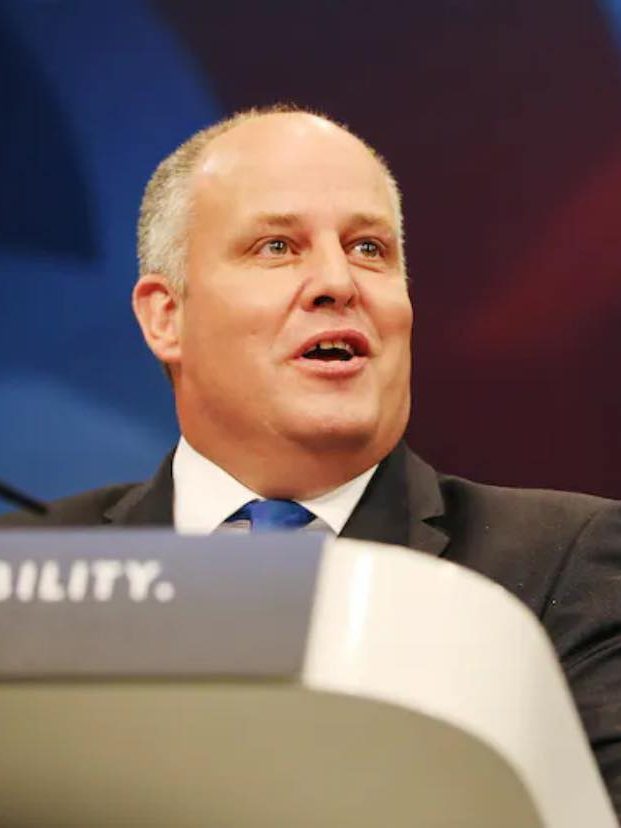
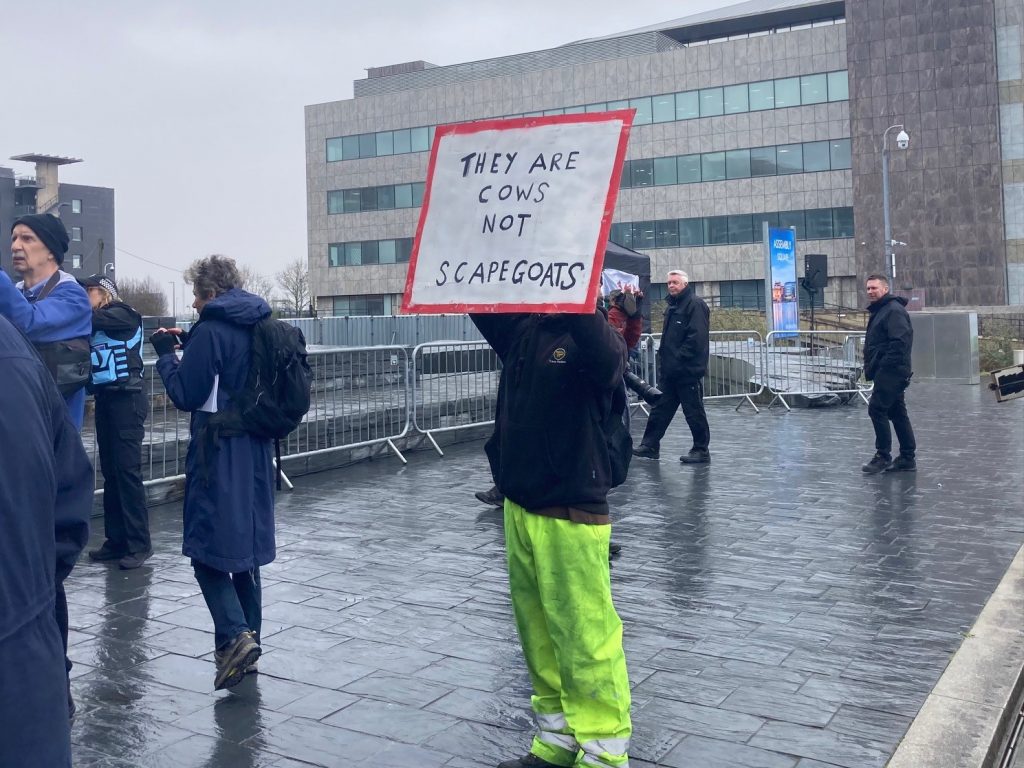

The leader of the Welsh Conservatives, Andrew RT Davies MS, reiterated his party’s opposition to the scheme.
“I give you this commitment, that from the Welsh Conservatives’ perspective, we will work with any politicians to make sure we secure that future and make that gain,” said Mr Davies.
The leader of Plaid Cymru, Rhun ap Iowerth MS, also spoke on the need to “act together”.
“We together can make that difference and achieve that change on SFS,” said Mr ap Iowerth.
What now for the SFS?
Yesterday, 5,500 pairs of wellies were laid out on the Senedd steps to protest against the predicted 5,500 farming jobs at risk if the SFS goes ahead.
At the protest was the President of NFU Cymru, Aled Jones, who said the impact of the scheme could be “absolutely devastating for farming”.
“This is massive so there have to be changes. If we don’t get changes I don’t know what will happen,” said Mr Jones.
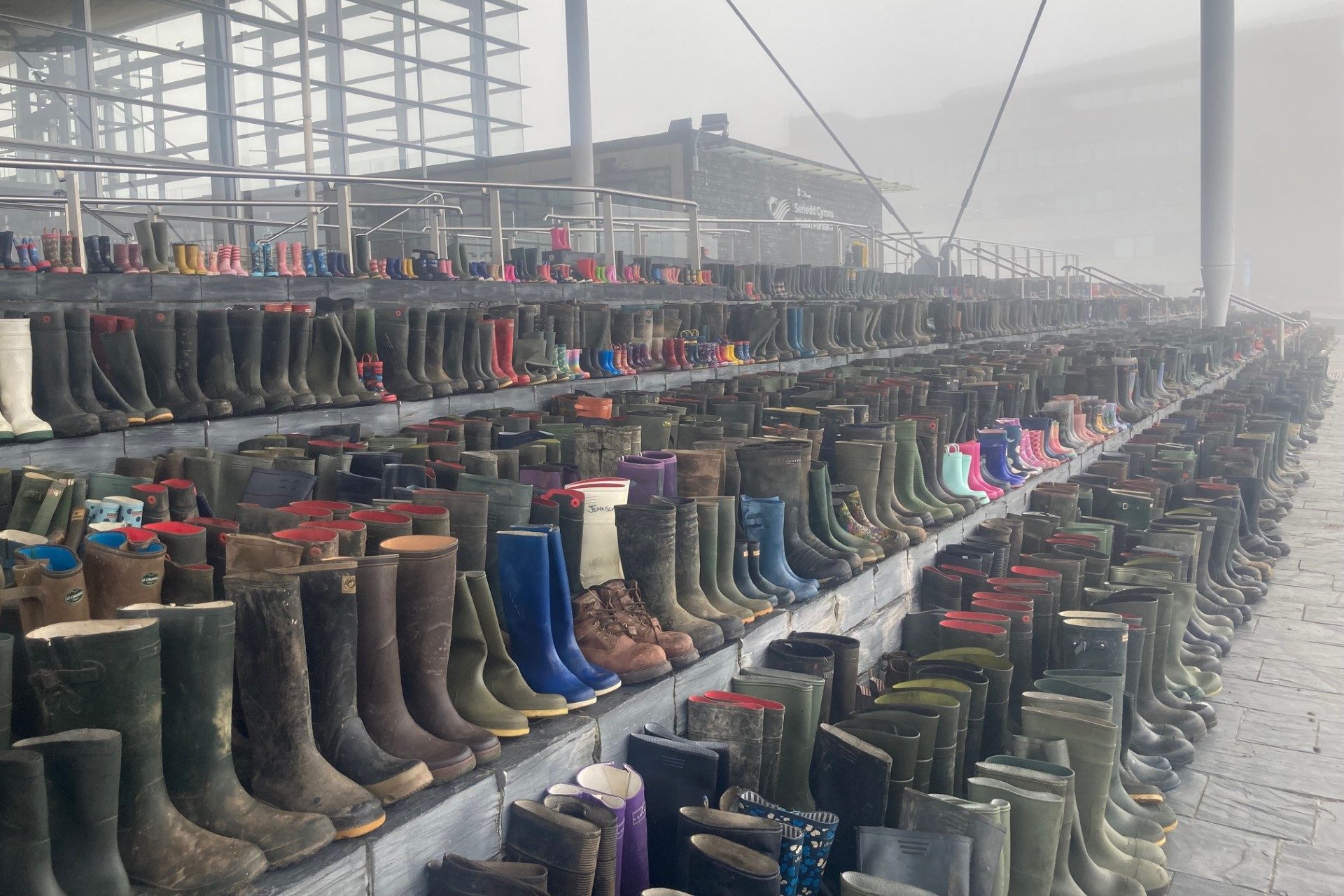
”The fixation with trees has become toxic. Academics will demonstrate to you the favourability of Welsh farming is in its trees but also its hedgerows and soils as well. That has not been accurately represented in this consultation.”
Mr Jones said that NFU Cymru has asked ministers for “regular meetings” and to “set up a science panel to look into alternatives”.
“The consultation might close tomorrow, but the journey does not.”
The end of the SFS consultation means that the scheme will now go to an independent body to assess all of the responses from farmers.


